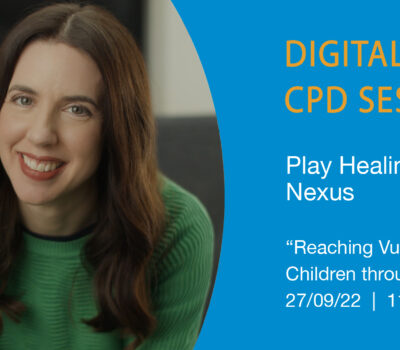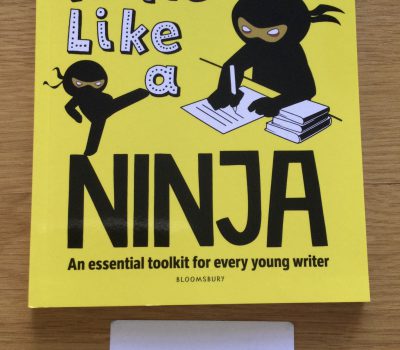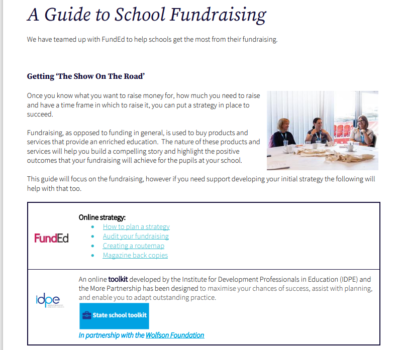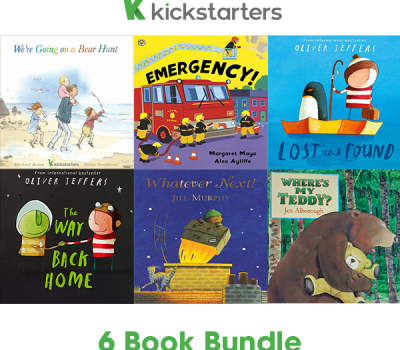


Our team sorts through all blog submissions to place them in the categories they fit the most - meaning it's never been simpler to gain advice and new knowledge for topics most important for you. This is why we have created this straight-forward guide to help you navigate our system.


And there you have it! Now your collection of blogs are catered to your chosen topics and are ready for you to explore. Plus, if you frequently return to the same categories you can bookmark your current URL and we will save your choices on return. Happy Reading!
Research and Information Fluency is one of the key strands for student success but are your students looking in the right places? Janelle McLaughlin highlights how to encourage students to use reliable sources.
This video clip is a bit old, but I still like using it to spark conversation on why we need to teach differently in today’s classrooms. When we have almost instant access to factual information, we shouldn’t be asking students to simply recall those facts. The Teaching Innovation Progression Chart highlights Research and Information Fluency as one of the key strands for student success. In a student-driven classroom, teachers should be modelling strategies to guide student investigation, designing challenges that promote synthesis of resources to address an authentic task, supporting students as they acquire, evaluate, and apply information, and facilitating and formatively assessing authentic tasks where students are engaged in research and using information fluently. In these classrooms, we should see students constructing questions to guide research, selecting the most appropriate digital tools and information sources, assembling and synthesising information to address authentic tasks, and using tools to powerfully display and interact with information.
Most people think of “research projects” as being a major undertaking. There are definitely places for extensive research, but giving students one-day research opportunities are just as important. Most students have never had to write their own questions to guide research, so this is a great place to start. An easy scaffold is for the teacher to give an overarching question (usually standards-based) and the students write two or three supporting questions that will help focus their research toward the main question.
Giving students opportunities to research isn’t enough…and actually shouldn’t be the first step. Digital Literacy (aka Information Fluency) is one of the nine pillars of Digital Citizenship. We need to teach students how to conduct reliable searches and how to determine if a source is valid. A simple method I often share with students is to “triangulate their data”. I tell them that if they aren’t using a website from a trusted source (ie .edu or .gov) that they have to find the same information on three different sources before they can consider it valid.
Common Sense Media
also has great resources available for teachers, students, and parents to help increase research and information fluency skills.
Check out this article by Jennifer Wilson, The end of ‘just Google it’: Why students need to be digitally literate, for more great information or share it with a colleague who still just tells students to “google it”.

The author

Read more

Read more

Read more

Read more

Read more

Read more

Read more

Read more


Are you looking for solutions? Let us help fund them! Nexus Education is a community of over 11,000 schools that come together to share best practise, ideas and CPD via online channels and free to attend events. Nexus also offers funding to all school groups in the UK via nexus-education.com


Established in 2011, One Education is a company at the heart of the education world, supporting over 600 schools and academies. Our unique appeal as a provider is in the breadth and synergy of the services we offer, supporting school leaders, teachers and support staff to achieve the best possible outcomes for their pupils and staff.

School Space is a social enterprise that has empowered schools for over 12 years through their profitable and hassle-free lettings services. So far, they’ve generated over £5 million in revenue for education, helping to connect over 200 schools with their local communities.


Unify is an online sales and marketing tool that allows users to create tailored personalised documents in moments.


There’s nothing special about the energy we sell. In fact, it’s exactly the same energy as all our competitors provide. But there is something special about the way we do it. Where others complicate the process, we simplify it. Where others confuse customers with hidden terms, we’re an open book. And where others do all they can to make as much money from their customers as possible, we do all we can to make as little. Everything we do, we do it differently. Our customers are a privilege. One we’ll never take advantage of.


Securus provide market-leading monitoring solutions to safeguard students on ALL devices both online and offline. We also offer a full monitoring service, where we carry out the monitoring on behalf of the school, freeing up valuable staff resources. From the smallest school to large MAT groups, Securus offers safeguarding protection for all!


Bodet Time offers dedicated solutions to education through lockdown alerts, class change systems, PA and synchronised clock systems. Improving time efficiency of the working and school day; ensuring safety through lockdown alerts; increasing communication with customised broadcast alerts.


Robotical makes Marty the Robot - a walking, dancing coding robot that makes programming fun and engaging for learners as young as 5. Our robots come with a full Learning Platform that has complete teaching resources, to make lesson planning a breeze.